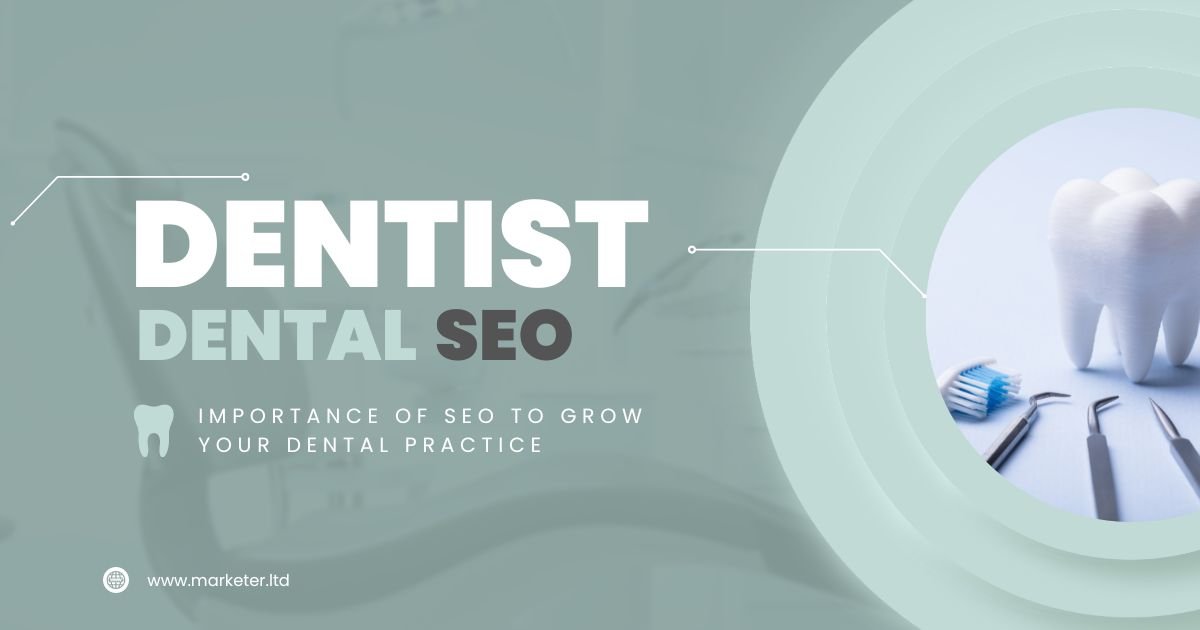Search engine optimization (SEO) has become an invaluable tool for businesses looking to improve their online visibility and attract new patients. Implementing an effective SEO strategy for your dental practice can help you connect with more prospective patients searching for a dentist in your area. Below we discuss some of the key benefits of investing in dental SEO and provide tips on optimizing your website and online presence.
Increasing Your Online Visibility
One of the main goals of SEO is to improve your search engine rankings so your website appears at the top of Google search results. The higher up you rank for keywords and phrases related to your services, the more likely you are to be found by potential new patients searching for a local dentist. SEO makes it easier for searchers to find you above your competitors. It establishes your practice as a leading provider in your geographic area.
Optimizing your pages and content for keywords that new patients are searching helps increase the likelihood of discovery. This visibility is valuable for garnering new business. Implementing SEO best practices ensures your website has the elements search engines are looking for when determining rankings.
Building Trust and Credibility
High search engine rankings lend an air of credibility to your practice. Patients often equate top placements with being an established and trusted dental provider. SEO helps convey that your practice is reputable and offers quality care.
Optimizing your website also shows you are modern and up-to-date with current technologies. Online visibility demonstrates you understand today’s digital landscape and how patients research healthcare providers. Patients will feel more confident choosing a dentist who has a robust and informative online presence.
Targeting Local Patient Searches
One of the benefits of SEO for healthcare practices is the ability to target local service-based searches. Local SEO tactics allow you to optimize your website for searches within a specific geographic radius. This enables you to reach patients who are actively looking for a dentist in your city or county.
Focusing your SEO efforts on local keywords helps you connect with leads actively looking for a provider in your area. Including your location in page titles, content, and meta descriptions lets search engines know your services are localized. Listing schema markup and NAP (name, address and phone number) information also helps confirm your location.
Providing Valuable Information to Patients
Optimizing your website content provides an opportunity to craft informative pages that answer common dental questions. You can create pages that address specific services, treatments, dental conditions, and other patient concerns. These pages should be written to provide value to the reader, not just optimized for keywords.
Informative content that engages visitors can help convert searches into appointments. Pages that clearly explain dental procedures and conditions establish your practice as an authoritative source. Patients will come to rely on your website as a helpful educational resource.
Driving Referrals and Word-of-Mouth
An effective SEO strategy extends beyond attracting new visitors – you also want to encourage repeat visits, referrals, and word-of-mouth. Implementing SEO best practices helps ensure that each page of your website is appealing, easy-to-navigate, and useful to visitors. This cultivates trust in your services and brand.
Patients who have a positive experience interacting with your website content and finding the information they need will be more likely to recommend your practice to family, friends and social networks. In this way, SEO helps facilitate organic referrals and word-of-mouth marketing for minimal cost.
Tips for Optimizing Your Dental Website
Implementing an effective SEO strategy requires optimizing your dental website across multiple factors. Here are some key tips for practitioners looking to improve their search rankings and online presence:
Conduct Keyword Research
Thorough keyword research is foundational to an SEO campaign. Identifying high-value keywords helps you understand what terms and phrases patients are using to search for dental services in your area. Make a list of relevant keywords around services, treatments, and common dental issues to target. Avoid over-optimizing for keywords, focus on providing quality content.
Optimize Site Architecture
Ensure your website has a clear information architecture and intuitive navigation. Page titles and headings should reflect target keywords where appropriate while maintaining readability. Include nested landing pages for specific services and treatments. Improve site speed and mobile-friendliness – slow load times negatively impact rankings.
Update Page Meta Data
Meta descriptions provide a short summary of the page in search listings. Make sure descriptions are customized for each page using compelling language. Meta titles should be concise and include primary keywords. Structured data markup also helps search engines understand your content.
Produce Engaging Content
Craft page copy that provides value to readers by educating them on dental topics. Align content with keyword opportunities by addressing common patient questions and concerns. Update blog regularly with helpful articles related to your services. Include FAQ schema markup for question-based content.
Get Recommendations and Reviews
Positive patient testimonials and online reviews help establish credibility. Make it easy for happy patients to leave Google reviews or testimonials on your website. Don’t stack all reviews on your home page – showcase some on individual service pages.
Claim and Optimize Listings
Ensure your NAP information is consistent across directories like Google My Business, Apple Maps, Bing Places, and Yelp. Provide a complete practice overview, service list, photos, and FAQ. Enable appointment booking if available. Monitor and respond to reviews.
Optimizing Your Local Search Presence
Focusing your SEO efforts on optimizing your local presence helps attract patients in your specific geographic service area. Here are some components to optimize:
Google My Business Listing
Google My Business functions as your professional profile on Google. It aggregates your practice information into the knowledge panel that appears prominently in local search results. Ensure your listing is completely filled out and includes keywords in the description.
Reviews and Testimonials
Local rankings factor in the quantity and quality of Google reviews. Enable reviews on Google My Business and politely request satisfied patients provide feedback. Aim for 5-star average rating with several recent reviews. Reply publicly to all reviews.
Long-Tail Keywords
Target long-tail versions of keywords like “emergency dentist in [city]” and “[service] for kids near me”. These help you rank for hyperlocal searches by patients in your neighborhood. Include city/neighborhood names in content where relevant.
Link Building
Build quality backlinks to your website from directories, industry resources and local citation sources. Avoid low-quality link networks or schemes. Links help establish domain authority and trust locally.
On-Site Optimization
Structure your website using a “locations” template and include unique content for each location page. This helps search engines isolate pages geographically. Place city prominently in page titles, content and metadata.
Social Media Profiles
Maintaining active social media profiles like Facebook and Instagram helps improve local SEO. Link to your website and engage followers. Request reviews from patients. Enable location services on posts when possible.
Monitoring and Improving Results
SEO is an ongoing process that requires continual optimization and monitoring of results. Here are some strategies for tracking progress:
- Use Google Analytics to monitor website traffic from organic searches. Review acquisition reports to identify top landing pages.
- Monitor keyword rankings monthly using tools like SEMrush, Moz or Ahrefs to see improvements. Update targeting as needed.
- Set up reporting in Google Search Console to identify potential site issues impacting SEO. Improve site speed and mobile experience.
- Check rankings in Google Maps for relevant keywords including your location. Claim and enhance listings as needed.
- Use local listing management platforms to monitor the accuracy of NAP information on directories. Fix duplicate listings.
- Review patient feedback and reviews on Google, Facebook and other platforms. Respond promptly.
- Seek professional SEO consulting if needed to identify issues holding your practice back from ranking well.
Investing in dental SEO services provides valuable benefits for your practice. Following SEO best practices allows you to target prospective patients in your local area, build your reputation online, and grow your practice through increased visibility. With continual optimization and monitoring, your website can become a driver of new patient appointments.t



